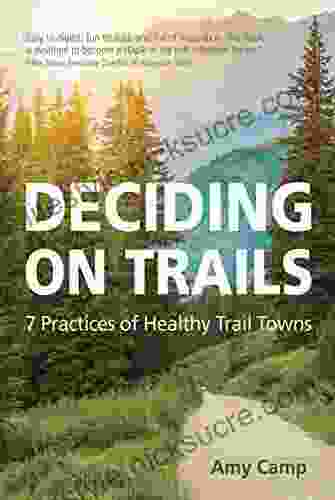The Genealogy of the Informational Person: Uncovering the Roots of Our Knowledge Society

In the contemporary digital age, we are constantly bombarded with information from a myriad of sources. We have access to vast libraries of books, articles, and videos at our fingertips, and we can communicate with people from all over the world with just a few clicks. This abundance of information has given rise to a new type of person: the informational person.
The informational person is someone who is able to navigate and make sense of the vast sea of information that is available to us. They are able to find the information they need, evaluate its credibility, and use it to make informed decisions. Informational people are essential for a healthy and functioning knowledge society.
The genealogy of the informational person can be traced back to ancient Greece. The ancient Greeks were the first to develop a concept of information literacy, which they called "γραμματισμός" (grammatismos). Grammatismos was the ability to read and write, and it was considered to be an essential skill for all citizens. The Greeks believed that a literate person was able to participate fully in civic life and make informed decisions about the issues of the day.
4.5 out of 5
| Language | : | English |
| File size | : | 4406 KB |
| Text-to-Speech | : | Enabled |
| Screen Reader | : | Supported |
| Enhanced typesetting | : | Enabled |
| Word Wise | : | Enabled |
| Print length | : | 279 pages |
| Lending | : | Enabled |
The concept of information literacy was further developed by the Romans, who coined the term "literatus" to describe someone who was well-read and knowledgeable. The Roman philosopher Cicero believed that literacy was essential for a well-rounded education, and he encouraged his students to read widely and critically.
During the Middle Ages, the concept of information literacy was largely confined to the elite. Only a small number of people had access to books and other written materials. However, the invention of the printing press in the 15th century made it possible for more people to gain access to information. This led to a renewed interest in information literacy, and the term "literacy" began to be used to describe the ability to read and write as well as the ability to find and use information.
The concept of information literacy continued to develop during the Renaissance and the Enlightenment. The Renaissance humanists believed that everyone should have access to education, and they promoted the study of the classics as a way to develop critical thinking skills. The Enlightenment philosophers emphasized the importance of reason and logic, and they believed that everyone should be able to make informed decisions about their lives.
In the 19th century, the concept of information literacy was further expanded to include the ability to use new technologies to find and use information. The invention of the telegraph, the telephone, and the radio made it possible for people to communicate and share information more easily. The development of libraries and museums also made it possible for people to access a wider range of information.
The 20th century saw the continued development of the concept of information literacy. The invention of the computer and the Internet made it possible for people to access vast amounts of information with just a few clicks. This led to a renewed interest in information literacy, and educators began to develop new ways to teach students how to find, evaluate, and use information.
Today, the concept of information literacy is more important than ever before. In the digital age, we are constantly bombarded with information from a myriad of sources. We need to be able to find the information we need, evaluate its credibility, and use it to make informed decisions. Informational people are essential for a healthy and functioning knowledge society.
Informational people are characterized by a number of traits, including:
- A love of learning: Informational people are always eager to learn new things. They enjoy reading, watching documentaries, and exploring new websites.
- A critical mind: Informational people are able to think critically about information. They are not easily swayed by opinions or propaganda. They are able to evaluate information and make their own judgments about its accuracy and reliability.
- A thirst for knowledge: Informational people are always looking for new information. They are not satisfied with what they already know. They are always seeking out new knowledge and experiences.
- A strong sense of curiosity: Informational people are always asking questions. They want to know how things work and why things happen. They are not afraid to explore new ideas and challenge the status quo.
- A commitment to lifelong learning: Informational people believe that learning is a lifelong process. They are always looking for new ways to improve their knowledge and skills.
Information literacy is essential for a number of reasons. First, it allows us to make informed decisions. In the digital age, we are constantly bombarded with information from a myriad of sources. We need to be able to evaluate the credibility of this information and make decisions about what to believe. Information literacy helps us to do this by teaching us how to find, evaluate, and use information.
Second, information literacy allows us to participate fully in civic life. In a democracy, citizens need to be able to make informed decisions about the issues of the day. This requires access to information and the ability to evaluate its credibility. Information literacy helps us to do this by teaching us how to find, evaluate, and use information.
Third, information literacy allows us to succeed in the workplace. In the 21st-century economy, workers need to be able to find, evaluate, and use information. This is essential for success in any field. Information literacy helps workers to do this by teaching them how to find, evaluate, and use information.
The informational person is a product of centuries of development. The concept of information literacy can be traced back to ancient Greece, and it has been expanded and refined over the centuries to meet the needs of a changing world. Today, information literacy is more important than ever before. In the digital age, we are constantly bombarded with information from a myriad of sources. We need to be able to find the information we need, evaluate its credibility, and use it to make informed decisions. Informational people are essential for a healthy and functioning knowledge society.
4.5 out of 5
| Language | : | English |
| File size | : | 4406 KB |
| Text-to-Speech | : | Enabled |
| Screen Reader | : | Supported |
| Enhanced typesetting | : | Enabled |
| Word Wise | : | Enabled |
| Print length | : | 279 pages |
| Lending | : | Enabled |
Do you want to contribute by writing guest posts on this blog?
Please contact us and send us a resume of previous articles that you have written.
 Fiction
Fiction Non Fiction
Non Fiction Romance
Romance Mystery
Mystery Thriller
Thriller SciFi
SciFi Fantasy
Fantasy Horror
Horror Biography
Biography Selfhelp
Selfhelp Business
Business History
History Classics
Classics Poetry
Poetry Childrens
Childrens Young Adult
Young Adult Educational
Educational Cooking
Cooking Travel
Travel Lifestyle
Lifestyle Spirituality
Spirituality Health
Health Fitness
Fitness Technology
Technology Science
Science Arts
Arts Crafts
Crafts DIY
DIY Gardening
Gardening Petcare
Petcare Rosanna Davison
Rosanna Davison Joseph Wayne Smith
Joseph Wayne Smith Donna Williams
Donna Williams Derrick Jensen
Derrick Jensen Mark W T Harvey
Mark W T Harvey Deborah Lipsky
Deborah Lipsky Jenny Landreth
Jenny Landreth Amber Lia
Amber Lia Dolores Kong
Dolores Kong Camille Glenn
Camille Glenn Wendy Margolis
Wendy Margolis Johan Norberg
Johan Norberg Garrett M Fitzmaurice
Garrett M Fitzmaurice Amy Blakeslee
Amy Blakeslee Michael Winkelman
Michael Winkelman Jan Marie Mueller
Jan Marie Mueller Ronda Rousey
Ronda Rousey Mark Turley
Mark Turley David Salsburg
David Salsburg Stephen M Barr
Stephen M Barr J Stephen Jones
J Stephen Jones A Sorority Of Mothers
A Sorority Of Mothers Stephen J Collier
Stephen J Collier Courtney Defeo
Courtney Defeo Michelle Newhart
Michelle Newhart James E Packer
James E Packer Test Masters
Test Masters Toni Tone
Toni Tone Thomas J Whalen
Thomas J Whalen Amir Alexander
Amir Alexander Ruth M Tappen
Ruth M Tappen Kathy Spratt
Kathy Spratt Sharon K Zumbrunn
Sharon K Zumbrunn Jack Freeman
Jack Freeman Jeanne Ryan
Jeanne Ryan Ruta Nonacs
Ruta Nonacs Stephen Barr
Stephen Barr Amy Bleuel
Amy Bleuel Eugene C Toy
Eugene C Toy Charles Thompson
Charles Thompson E T Bryant
E T Bryant Mark Stallard
Mark Stallard John Jacobs
John Jacobs Amie Kaufman
Amie Kaufman Cordelia K Castel
Cordelia K Castel Pinky Mckay
Pinky Mckay Kristine Kathryn Rusch
Kristine Kathryn Rusch Philip Gibson
Philip Gibson C W Lockhart
C W Lockhart Elizabeth Lim
Elizabeth Lim Robert W D Ball
Robert W D Ball Roman Gelperin
Roman Gelperin Diane Greer
Diane Greer Michael Abayomi
Michael Abayomi Paul Schwartz
Paul Schwartz John Bingham
John Bingham Dr Scott A Johnson
Dr Scott A Johnson Cathy Williams
Cathy Williams Jennifer S Kelly
Jennifer S Kelly Bill Carter
Bill Carter Tim Hornbaker
Tim Hornbaker Carlo Buzzichelli
Carlo Buzzichelli Lisa Zimmer Hatch
Lisa Zimmer Hatch Stanley J Farlow
Stanley J Farlow Joel Cotton
Joel Cotton Wolf Moon
Wolf Moon Amy Baldwin
Amy Baldwin Joellen Patterson
Joellen Patterson Sarah Dessen
Sarah Dessen Amelia Freer
Amelia Freer Amber O Neal Johnston
Amber O Neal Johnston Rodney M Howard Browne
Rodney M Howard Browne Glenn Stout
Glenn Stout John A Buehrens
John A Buehrens Brendan Leonard
Brendan Leonard Dan Schlossberg
Dan Schlossberg Amit Saha
Amit Saha Rose Mannering
Rose Mannering Chris Irons
Chris Irons Michael Ondaatje
Michael Ondaatje Nikhil Bhardwaj
Nikhil Bhardwaj K M Shea
K M Shea Clotaire Rapaille
Clotaire Rapaille Melody Schreiber
Melody Schreiber Joe Nickell
Joe Nickell Vince Kotchian
Vince Kotchian Spike Dykes
Spike Dykes J L Weil
J L Weil Victoria Richards
Victoria Richards Hadley Wickham
Hadley Wickham Joseph Klaits
Joseph Klaits Harley Reid
Harley Reid Sheena Johnstone
Sheena Johnstone Terry Wieland
Terry Wieland Sterling Test Prep
Sterling Test Prep Paul Dickson
Paul Dickson Dave Hanson
Dave Hanson William Bohan
William Bohan Amber Foster
Amber Foster William Stillman
William Stillman Tom Taulli
Tom Taulli Peter Larson
Peter Larson Nathan Belofsky
Nathan Belofsky Nina Freudenberger
Nina Freudenberger Zeshan Qureshi
Zeshan Qureshi Gia Giasullo
Gia Giasullo Oscar Baechler
Oscar Baechler Kate Parham Kordsmeier
Kate Parham Kordsmeier William Glasser M D
William Glasser M D Ashley Scott
Ashley Scott Vivian Vande Velde
Vivian Vande Velde Marisa Anne Bass
Marisa Anne Bass Tanya Turner
Tanya Turner Wade Rouse
Wade Rouse Marit Weisenberg
Marit Weisenberg Fred Pyrczak
Fred Pyrczak Randall E Schumacker
Randall E Schumacker Sean Go
Sean Go Tom Colicchio
Tom Colicchio Sarah Woodbury
Sarah Woodbury Karen Deerwester
Karen Deerwester Rich Rousseau
Rich Rousseau Dr Elizabeth Cherevaty Nd Rac
Dr Elizabeth Cherevaty Nd Rac Joe E Harvey
Joe E Harvey Jack Ewing
Jack Ewing Ned Seaton
Ned Seaton Angela Moore
Angela Moore Sarah Sumbal
Sarah Sumbal Jonathon Miller Weisberger
Jonathon Miller Weisberger Marina Robb
Marina Robb John L Field
John L Field Leslie Sansone
Leslie Sansone Kathleen Glasgow
Kathleen Glasgow Paul Oliver
Paul Oliver Katherine Kurtz
Katherine Kurtz Steven Charleston
Steven Charleston Adam Cort
Adam Cort Sean Gibson
Sean Gibson Ned Vizzini
Ned Vizzini Shanna Cunning
Shanna Cunning Jonathan Law
Jonathan Law Lady Antiva
Lady Antiva Jeff Gaudette
Jeff Gaudette Amber Smith
Amber Smith James Mullaney
James Mullaney Christina Kamp
Christina Kamp James W Williams
James W Williams Marshall Goldsmith
Marshall Goldsmith Mike Adamick
Mike Adamick Bethanne Kim
Bethanne Kim Shannon O Bourne
Shannon O Bourne Eric Zweig
Eric Zweig Steve Greenberg
Steve Greenberg Edward J Denecke
Edward J Denecke Martin Williams
Martin Williams Josiah Hesse
Josiah Hesse Craig Larman
Craig Larman Andrey Ryanskiy
Andrey Ryanskiy Cheri Rae
Cheri Rae Philippa Langley
Philippa Langley Ken Chaddock
Ken Chaddock Md Rezowan Ahmed
Md Rezowan Ahmed David Elkington
David Elkington Mac Fortner
Mac Fortner Michael R Poll
Michael R Poll John Lukacs
John Lukacs Tyler Simmons
Tyler Simmons American Math Academy
American Math Academy Michael Reichert
Michael Reichert Kieron Gillen
Kieron Gillen Robert A Weinberg
Robert A Weinberg Cole Hersowitz
Cole Hersowitz David Yoon
David Yoon Tahlia Kirk
Tahlia Kirk Donovan Hohn
Donovan Hohn Therese A Rando
Therese A Rando Brian Klaas
Brian Klaas Susan White
Susan White Umer W
Umer W Swede Burns
Swede Burns Desi Northup
Desi Northup David Grinspoon
David Grinspoon Amira Mikhail
Amira Mikhail Malba Tahan
Malba Tahan Jameson M Wetmore
Jameson M Wetmore Stephenie Meyer
Stephenie Meyer Victor J Stenger
Victor J Stenger Sandra Luna Mccune
Sandra Luna Mccune Joseph Conrad
Joseph Conrad Topher Donahue
Topher Donahue David Burch
David Burch Michael Parker Pearson
Michael Parker Pearson Joan Freeman
Joan Freeman Paul Kaplowitz
Paul Kaplowitz Josh Taylor
Josh Taylor Deborah J Rumsey
Deborah J Rumsey Tijan
Tijan Kumo Kagyu
Kumo Kagyu Sarah J Maas
Sarah J Maas Byron Nelson
Byron Nelson Valerie Bass
Valerie Bass Jon Bonnell
Jon Bonnell Ananda Lowe
Ananda Lowe Pico Iyer
Pico Iyer Art Star
Art Star James P Kelly
James P Kelly Paul Kockelman
Paul Kockelman Joseph Howse
Joseph Howse Don Mann
Don Mann June Cl Tan
June Cl Tan Helen E Fisher
Helen E Fisher Amber Lee Sellers
Amber Lee Sellers Laini Taylor
Laini Taylor Andy Couturier
Andy Couturier Danny Dreyer
Danny Dreyer Mark Taylor
Mark Taylor Norman Doidge
Norman Doidge Mariano Anaya
Mariano Anaya Jean Christie Ashmore
Jean Christie Ashmore Charles Hall
Charles Hall David Ranney
David Ranney Holly Herrick
Holly Herrick David Guymer
David Guymer Shere Hite
Shere Hite Laura Slinn
Laura Slinn Eric E Bowne
Eric E Bowne Torey L Hayden
Torey L Hayden Marco Ferrero
Marco Ferrero Howard J Meditz
Howard J Meditz Amy Camp
Amy Camp Jean Rose
Jean Rose Richard Wagamese
Richard Wagamese Dan Abnett
Dan Abnett Liz Fosslien
Liz Fosslien Silvia Botros
Silvia Botros Jason Borte
Jason Borte Candida Lawrence
Candida Lawrence Vinod Kumar Khanna
Vinod Kumar Khanna Jack Nisbet
Jack Nisbet Laurie A Watkins
Laurie A Watkins Eric T Knight
Eric T Knight Don Stradley
Don Stradley Kasie West
Kasie West Brian Kateman
Brian Kateman Cynthia Gabriel
Cynthia Gabriel Amante P Marinas
Amante P Marinas Jonathan Bartlett
Jonathan Bartlett Laekan Zea Kemp
Laekan Zea Kemp Deborah Vinall Psyd Lmft
Deborah Vinall Psyd Lmft Warren B Powell
Warren B Powell Bridget Ericsson
Bridget Ericsson Lizabeth Hardman
Lizabeth Hardman Lisa Maloney
Lisa Maloney Larry K Brendtro
Larry K Brendtro Matthew Lombardi
Matthew Lombardi Rachel Gurevich
Rachel Gurevich Sue Monk Kidd
Sue Monk Kidd Jd Mader
Jd Mader Kresley Cole
Kresley Cole Guillaume Haeringer
Guillaume Haeringer Autumn Jordon
Autumn Jordon Julie Schacht Sway
Julie Schacht Sway Robert Melillo
Robert Melillo Jeff Martone
Jeff Martone Amby Cooper
Amby Cooper Shaun Gallagher
Shaun Gallagher Peter Hayes
Peter Hayes Amy Perry
Amy Perry Erica T Lehrer
Erica T Lehrer Nick Kolenda
Nick Kolenda Chloe Gong
Chloe Gong Sandra T Barnes
Sandra T Barnes Don Orwell
Don Orwell Sian Warriner
Sian Warriner Andy Hunt
Andy Hunt Erika Napoletano
Erika Napoletano Frederick Lenz
Frederick Lenz Shalabh Aggarwal
Shalabh Aggarwal Michaela Riva Gaaserud
Michaela Riva Gaaserud Theresa Y Wee M D
Theresa Y Wee M D Summer Michaud Skog
Summer Michaud Skog Tavi Gevinson
Tavi Gevinson American Psychological Association
American Psychological Association Kris Leonard
Kris Leonard Kathy A Zahler
Kathy A Zahler Catherine Dees
Catherine Dees Richard Cohen
Richard Cohen Eugenia Viti
Eugenia Viti Peter Worley
Peter Worley Sandra Bardwell
Sandra Bardwell Sheri Van Dijk
Sheri Van Dijk Cody Monk
Cody Monk Alex Polyakov
Alex Polyakov Muhammad Vandestra
Muhammad Vandestra Alan Margot
Alan Margot Gal Dem
Gal Dem Chad Ford
Chad Ford Pamela Lynn
Pamela Lynn Christopher E Larsen
Christopher E Larsen Julie Caplin
Julie Caplin Neville Goddard
Neville Goddard Trevor Day
Trevor DayK D
 Bruce Dowbiggin
Bruce Dowbiggin Pav Bryan
Pav Bryan Redmond O Hanlon
Redmond O Hanlon Suzanne Stabile
Suzanne Stabile Gail Maccoll
Gail Maccoll Candy Verney
Candy Verney Antonio R Damasio
Antonio R Damasio Reinhold Messner
Reinhold Messner Henry A Zumbrun 2
Henry A Zumbrun 2 Alex Stone
Alex Stone Md Mahady Hasan
Md Mahady Hasan Anne Chambers
Anne Chambers Alexandrea Weis
Alexandrea Weis Erin Chack
Erin Chack Tom Deck
Tom Deck Helena P Blavasky
Helena P Blavasky Kathleen M Stacy
Kathleen M Stacy Charles J Alsheimer
Charles J Alsheimer Jan E Stets
Jan E Stets Tim Marshall
Tim Marshall Grant Dever
Grant Dever Krystal Sutherland
Krystal Sutherland Tracy Lorraine
Tracy Lorraine Amelia Parker
Amelia Parker Jeffrey Steadman
Jeffrey Steadman Kate Fox
Kate Fox Rob Antoun
Rob Antoun Christopher Cousteau
Christopher Cousteau Jennifer Margulis
Jennifer Margulis Ryan Gray
Ryan Gray Christine Fanthome
Christine Fanthome K F Breene
K F Breene P Aarne Vesilind
P Aarne Vesilind William Rosen
William Rosen Joe Dan Lowry
Joe Dan Lowry Jayson Gaddis
Jayson Gaddis J Marin Younker
J Marin Younker Paul Graham
Paul Graham Heidi J Larson
Heidi J Larson Joseph P Weir
Joseph P Weir Saleh Alkhalifa
Saleh Alkhalifa Dima Zales
Dima Zales Isabella Krystynek
Isabella Krystynek Amy Adele Hasinoff
Amy Adele Hasinoff Anna B Doe
Anna B Doe Louise Bates Ames
Louise Bates Ames Tabitha Suzuma
Tabitha Suzuma Jenni Hicks
Jenni Hicks Susanna Heli
Susanna Heli Kate Tietje
Kate Tietje Doug Peterson
Doug Peterson American Baseball Coaches Association
American Baseball Coaches Association Emma Mae Jenkins
Emma Mae Jenkins Amber Zygutis
Amber Zygutis Nicholas A Christakis
Nicholas A Christakis Amiee Mueller
Amiee Mueller Dom Amore
Dom Amore Mitt Romney
Mitt Romney Derek Thompson
Derek Thompson Jason Thompson
Jason Thompson Andy Singleton
Andy Singleton Tom Patri
Tom Patri Jocelyn Goodwin
Jocelyn Goodwin Chad Starkey
Chad Starkey C L Simchick
C L Simchick William G Dever
William G Dever Clancy Cavnar
Clancy Cavnar Ana And Jack Hicks
Ana And Jack Hicks Frank Nappi
Frank Nappi Jeremy J Baumberg
Jeremy J Baumberg Timothy Malcolm
Timothy Malcolm Maria Youtman
Maria Youtman John Maxwell Wood
John Maxwell Wood Kenneth P Stephens
Kenneth P Stephens Dr Bob Rotella
Dr Bob Rotella Patricia L Papernow
Patricia L Papernow Amy Bizzarri
Amy Bizzarri Steven C Hayes
Steven C Hayes Iain Pardoe
Iain Pardoe Meikang Qiu
Meikang Qiu Alan I Marcus
Alan I Marcus Josephine Atluri
Josephine Atluri Theresa I Soto
Theresa I Soto Jack Tupp
Jack Tupp Sarah Morgan Haydock
Sarah Morgan Haydock Chris Carlsson
Chris Carlsson Joe Dante
Joe Dante Denise Ni
Denise Ni Gerald Corey
Gerald Corey Rick Stanton
Rick Stanton Jacob Bronowski
Jacob Bronowski Julie Mosier
Julie Mosier Jake Maddox
Jake Maddox Jessica Cunsolo
Jessica Cunsolo Erik Qualman
Erik Qualman Ruth Nestvold
Ruth Nestvold John Mcpherson
John Mcpherson Traci Gormley
Traci Gormley Douglas Wilson
Douglas Wilson Robb Walsh
Robb Walsh Claudia J Carr
Claudia J Carr Heather Macfadyen
Heather Macfadyen Ellie Wood
Ellie Wood Julie Barlow
Julie Barlow Ray Mancini
Ray Mancini George Bernard Shaw
George Bernard Shaw Gary Wiener
Gary Wiener Jessica Hatcher Moore
Jessica Hatcher Moore Patrick O Sullivan
Patrick O Sullivan Jerry D Moore
Jerry D Moore Stephen Walker
Stephen Walker Stephen Goodwin
Stephen Goodwin Christopher Harlan
Christopher Harlan Stanley I Greenspan
Stanley I Greenspan Temple Grandin
Temple Grandin Randy Schultz
Randy Schultz Nisha Garg
Nisha Garg Matthew L Martin
Matthew L Martin Jack Weatherford
Jack Weatherford Benjamin Jelen
Benjamin Jelen Amrita Pande
Amrita Pande Kezia Endsley
Kezia Endsley Amy Brown
Amy Brown Tamora Pierce
Tamora Pierce John Ferrell
John Ferrell L Frank Baum
L Frank Baum Thom Hartmann
Thom Hartmann Catherine Ryan Gregory
Catherine Ryan Gregory Sonia Hartl
Sonia Hartl Dana Obleman
Dana Obleman Rick Deutsch
Rick Deutsch Martin Pollizotto
Martin Pollizotto Jim Santos
Jim Santos Paul Wieland
Paul Wieland Trent Shelton
Trent Shelton Brian Pace
Brian Pace Amy B Middleman
Amy B Middleman Lars Andersen
Lars Andersen Django Paris
Django Paris Vicki Hearne
Vicki Hearne Michael Cosgrove
Michael Cosgrove Jean Van T Hul
Jean Van T Hul Jack Falla
Jack Falla Nicholeen Peck
Nicholeen Peck Naomi Oreskes
Naomi Oreskes Gina Chen
Gina Chen Nikala Smith
Nikala Smith Amelia Edith Huddleston Barr
Amelia Edith Huddleston Barr Mark Worden
Mark Worden Rosalind Wiseman
Rosalind Wiseman Elizabeth S Gilbert
Elizabeth S Gilbert Kyle Hunt
Kyle Hunt Ignatius Donnelly
Ignatius Donnelly Elise Christie
Elise Christie Robyn Davidson
Robyn Davidson Victoria Wood
Victoria Wood Brittany Clair
Brittany Clair Joseph Mcmoneagle
Joseph Mcmoneagle Amara Charles
Amara Charles Devin Olsen
Devin Olsen Anthony Horowitz
Anthony Horowitz Anthony Haynes
Anthony Haynes Theodore Sider
Theodore Sider Rob Fisher
Rob Fisher Janet Engle
Janet Engle Dmv Test Bank
Dmv Test Bank Kevin Stiegelmaier
Kevin Stiegelmaier Buck Tilton
Buck Tilton Arlene Blum
Arlene Blum Amy Mccready
Amy Mccready H Bedford Jones
H Bedford Jones Amie Lands
Amie Lands Eric Tyndall
Eric Tyndall Cookie O Gorman
Cookie O Gorman The 60 Minutes Summary
The 60 Minutes Summary Don Bowers
Don Bowers
Light bulbAdvertise smarter! Our strategic ad space ensures maximum exposure. Reserve your spot today!

 Isaac AsimovWolf Speaker: The Immortals by Tamora Pierce: An Enthralling Adventure into...
Isaac AsimovWolf Speaker: The Immortals by Tamora Pierce: An Enthralling Adventure into... Dwight BlairFollow ·15.8k
Dwight BlairFollow ·15.8k Earl WilliamsFollow ·5.6k
Earl WilliamsFollow ·5.6k Miguel de CervantesFollow ·12.7k
Miguel de CervantesFollow ·12.7k Zachary CoxFollow ·10.3k
Zachary CoxFollow ·10.3k Richard SimmonsFollow ·13.6k
Richard SimmonsFollow ·13.6k Pat MitchellFollow ·10.4k
Pat MitchellFollow ·10.4k Jayson PowellFollow ·13.8k
Jayson PowellFollow ·13.8k Leo TolstoyFollow ·18.7k
Leo TolstoyFollow ·18.7k
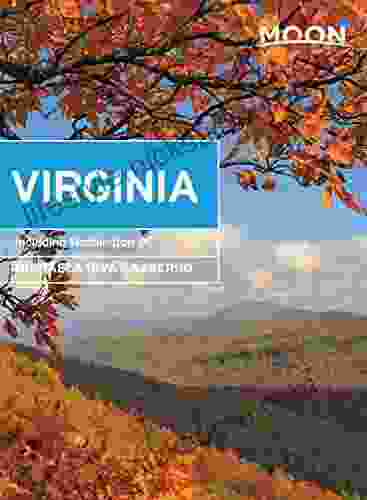
 Ira Cox
Ira CoxUnveiling the Hidden Gem: Moon, Virginia - A Washington...
Nestled within the picturesque...
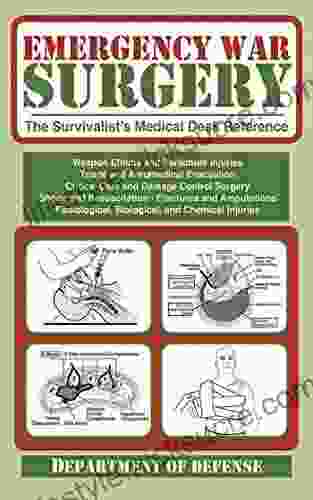
 Jorge Luis Borges
Jorge Luis BorgesThe Ultimate Survivalist's Medical Guide: A Comprehensive...
In the realm of...
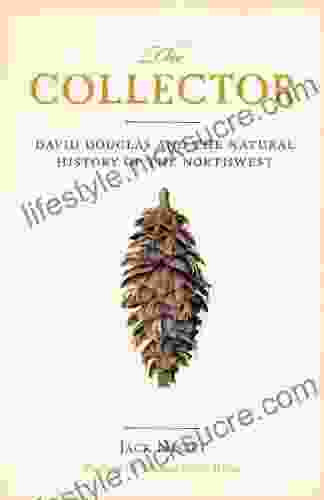
 Henry Green
Henry GreenDavid Douglas: Exploring the Natural History of the...
David Douglas was a...
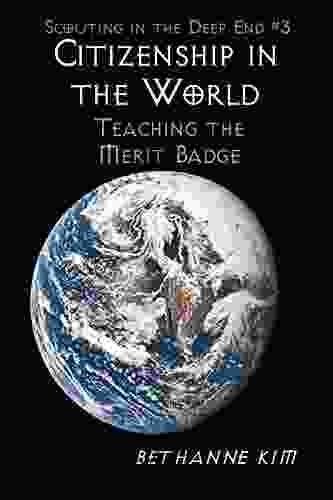
 Eric Hayes
Eric HayesUnderstanding Citizenship in a Globalized World: A...
Citizenship is a complex and multifaceted...

 Will Ward
Will WardUnveiling Research Real Talk: Navigating the Labyrinth of...
Research, the...
4.5 out of 5
| Language | : | English |
| File size | : | 4406 KB |
| Text-to-Speech | : | Enabled |
| Screen Reader | : | Supported |
| Enhanced typesetting | : | Enabled |
| Word Wise | : | Enabled |
| Print length | : | 279 pages |
| Lending | : | Enabled |











